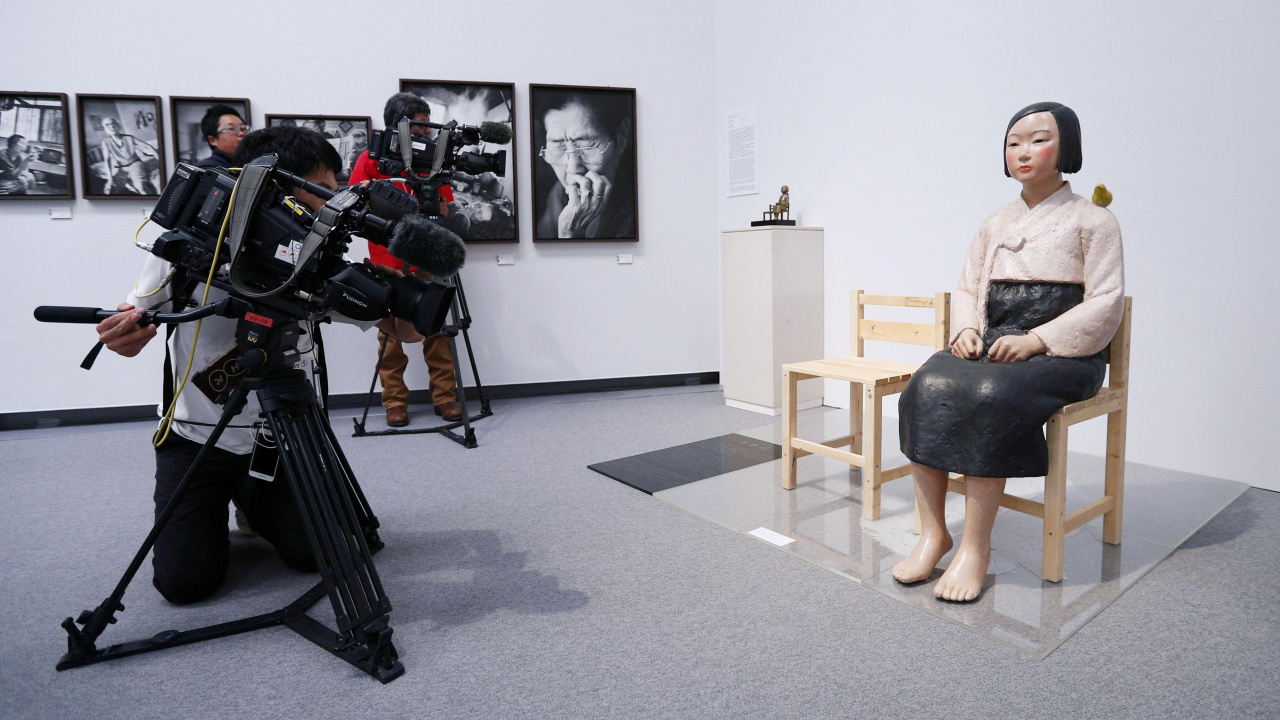MADRID (Reuters) -- A Spanish businessman has bought a statue symbolizing women forced to work in Japanese military brothels which was removed from an exhibition in Japan after organizers received threats over the piece.
The “Statue of a Girl Of Peace” symbolizes the “comfort women”, a euphemism referring to women, many of them Korean, forced into the brothels before and during World War II.
 |
Photo taken by Kyodo in Nagoya, Japan, on Aug. 3, shows a statue symbolizing “comfort women,” who were forced to work in wartime Japanese military brothels. Kyodo via Reuters. |
Estimates vary, but historians say thousands of women may have been involved. There are currently 20 survivors registered with the South Korean government and the subject remains a sensitive one in both countries and elsewhere in Asia.
The work was removed after it attracted “terror threats” via telephone and email as soon as it went on display this month at the Aichi Triennale art exhibition, Aichi Prefecture Governor Hideaki Omura told a news conference on August 3.
Businessman Tatxo Benet said he plans to display the work, which depicts a young woman wearing a traditional Korean dress sitting on one of two wooden chairs, in a “Freedom Museum” he plans to open in Barcelona as early as next year.
Benet, founder of soccer rights company Imagina (Mediapro), said the museum would exhibit around 60 pieces of artwork that have been censored in different parts of the world.
“A year and half ago I began buying artwork censured around the world for different reasons whether political, ethical, moral or sexual,” Benet told Reuters in a telephone interview.
After reading about the furor caused by the statue in Japan, he bought it last week, he said.
“I think I have enough material for a permanent exhibition center and perhaps even a documentation and archive center about censorship in the art world,” Benet said.
His collection includes a Lego brick portrait by Chinese dissident artist Ai Weiwei, a satirical painting of Donald Trump by Illma Gore and a video by David Wojnarowicz censored by the Smithsonian National Portrait Gallery in Washington.
From Spain, the exhibit will include a set of pictures of jailed Catalan separatist leaders which was removed from Madrid’s ARCO art fair last year.
Organizer Ifema said at the time that the controversy surrounding the pictures was hurting the visibility of other art works, an explanation which sparked complaints from separatist political parties and the left-wing Podemos Party. (Reuters)








